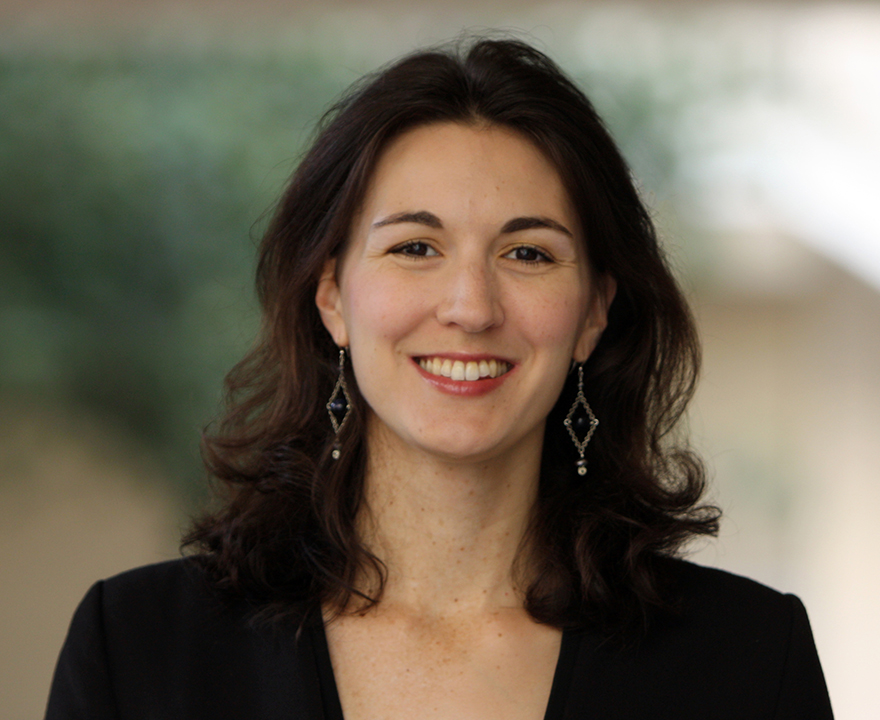Closing the gender gap in graduate training

Closing the gender gap in graduate training
- September 3, 2019
- Research by UCI political scientist Heidi Hardt and her co-authors takes a hard look at readings in Ph.D. classrooms and how they matter for women’s underrepresentation in academia
-----
Only one in five readings assigned to political science graduate students is written by a female author, says UCI political science associate professor Heidi Hardt. In an article published in both The Journal of Politics and PS: Political Science & Politics, Hardt and co-authors show that women are underrepresented on course syllabi and reading lists when compared with the rate at which women publish. What graduate students read matters for what they publish and go on to assign in their own classrooms - meaning this gender readings gap likely contributes to the gender citation gap.
“Courses are often graduate students’ first major exposure to a field of study. If women don’t appear much in syllabi or reading lists, students may receive the incorrect signal that women do not belong in academia. Implicit signals can add up - affecting the leaky pipeline, where women are leaving academia at higher rates than men,” says Hardt.
In the largest known study of Ph.D.-level assigned reading across a discipline, the researchers analyzed 88,673 readings from 840 syllabi and 65 reading lists used in political science graduate courses. They found that only 18.7 percent of first authors of readings were female. The number is significantly lower than the rate at which women publish in top journals - 27 percent - and are represented as faculty in top departments, also 27 percent.
One of the biggest factors affecting gender representation in assigned readings was instructor and department composition, Hardt says.
“As departments hire more female faculty, both male and female faculty became more likely to assign female-authored work,” she says.
The research also found that faculty’s individual characteristics affected gender representation in the syllabi that they produced. Faculty of color and female faculty were significantly more likely than white men to assign female-authored readings. Age also mattered; older, female faculty were more likely to assign such work.
In addition to documenting the gender readings gap, the researchers have also made their Graduate Assignments DataSet (GRADS) publicly available as a free online database. If scholars wish to diversify syllabi or publications, the database is searchable by keyword and readings are coded by author gender.
“We now know that there is a gender readings gap in political science. As more scholarship emerges, we hope to get a better sense of the size of the gap since we strongly suspect that many academic fields have such a gap. Next steps also involve looking at the downstream consequences – for citations, for future syllabi and for women’s retention in academia. ”
Hannah June Kim, UCI political science graduate student, and Amy Erica Smith and Philippe Meister at Iowa State University contributed to this study. Funding was provided by the American Political Science Association (APSA) Centennial Grant, a National Science Foundation (NSF) Political Science and Science of Broadening Participation Grant (Grant Number 1624120), and an Iowa State University College of Liberal Arts and Sciences Seed Grant.
-----
Would you like to get more involved with the social sciences? Email us at communications@socsci.uci.edu to connect.
Share on:
Related News Items
- Careet RightStudy sheds light on evolving views of gender integration within the US military
- Careet RightStudy by UC Irvine and Queen's University researchers sheds light on evolving views of gender integration within the U.S. military
- Careet RightReady for takeoff
- Careet RightNATO wants to be a leader on climate security. Here are the next steps to get there.
- Careet RightWhat we learned from the NATO summit


